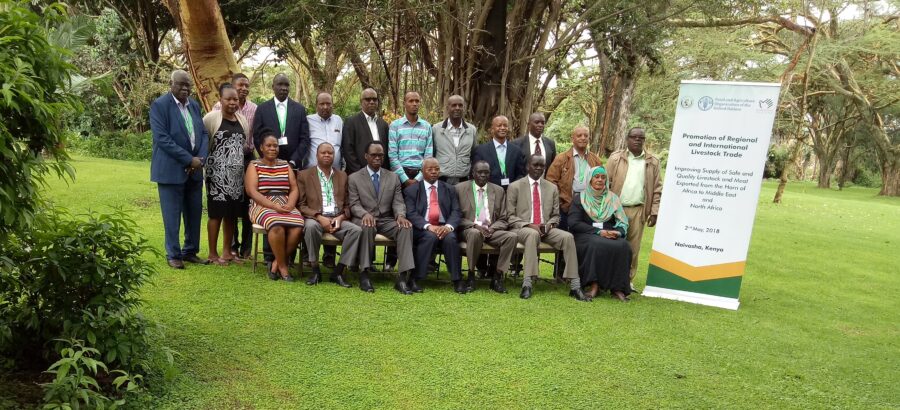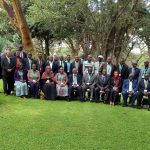IGAD and FAO have jointly been implementing a regional project on “Improving Supply of Safe and Quality Livestock and Meat Exported from the Horn of Africa to Middle East and North African Countries” financed by Italian International Cooperation. Several efforts including facilitating the private sector participation in Gulf Food Fair, training of trade counselors, exploring alternative markets in South East Asia, establishment of an IGAD-MENA technical committee have been undertaken to promote export trade, among others.
The meeting comprising of permanent secretaries /Under Secretaries together with the directors of animal health and production highlighted the regional efforts undertaken and achievements realized by ICPALD to enhance coordinated interventions to prevent and control transboundary animal diseases, enhance feed security and promote livestock trade; key challenges faced and areas requiring more focus with support from the national governments and implementing partners.
Dr. Charles Ochodo officiated the meeting on behalf of the Principal Secretary, Ministry of Agriculture and Irrigation, Kenya. He reiterated the importance of livestock to the region in terms of economic empowerment and livelihood earning even though it faces several challenges including transboundary animal diseases (TADs) that require regional collective efforts for efficient and effective prevention and control. Moreover, frequent drought as a result of climate change, poor infrastructure among others limit the region to compete globally.
Dr. Solomon Munyua; the Director of ICPALD in his welcome remarks informed participants that some export slaughterhouses in the region operate at less than 50%, due to inadequate supply of quality livestock as per the requirement of the importing countries. This is mainly due to inadequate feeds as a result of frequent drought in the region. It is important to promote commercial fodder/ feed and grass seed production to ensure feed security mitigate adequate livestock supply throughout the year.
The participants from the region made the following recommendations;
- Member states (MS) should enhance prevention and control of TADs through domestication and implementation of regional Animal health and related strategies, policies, cross border MoUs on animal health and trade and increase resource allocation to these programs
- MS should support and facilitate market research in livestock production systems and explore new market opportunities while promoting linkages with current ones
- MS should facilitate and support producers to take charge of the entire livestock value chain while regulatory authorities should enforce compliance with SPS measures to enhance export and import along the livestock value chain
- Line Ministries of livestock should work closely with investment authorities to explore available opportunities for investment in the sector
- MS should promote feed security by commercialization of quality fodder, feed and seed production and marketing in order to meet livestock market demand
- MS should prioritize provision of feeds as a mitigation factor to address effects of drought on vulnerable human populations
- MS should develop and operationalize national strategic feed reserves alongside human food reserves to mitigate effects of drought emergencies
- MS should work closely with implementing partners and coordinate projects and their interventions to complement national priority programmes
- MS should advocate allocation of grants to ICPALD during loan advancement to enable coordination of core programs between countries
- MS should promote investment in the livestock value chains with a focus to value addition.
ICPALD acknowledges and appreciates the Italian Development Cooperation for financing this event through the IGAD /FAO implemented livestock and meat project.






